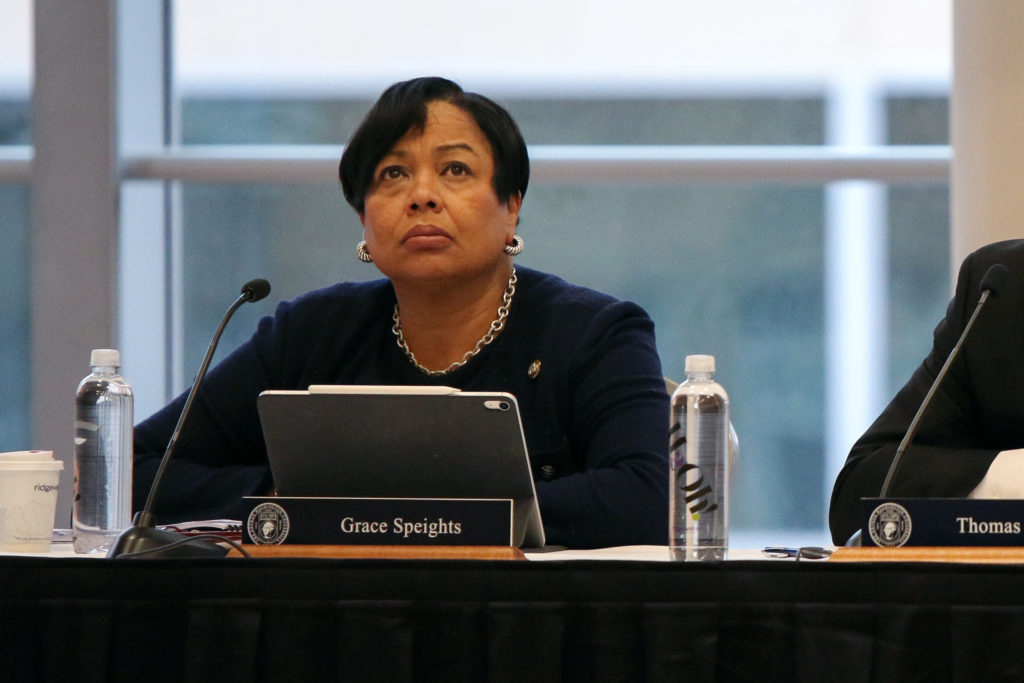The Board of Trustees’ Task Force on Environmental, Social and Governance Responsibility released recommendations that encourage trustees to fully divest GW’s endowment from the fossil fuel industry by 2025, according to an email sent to the GW community Tuesday.
The task force’s draft recommendations also include immediately halting all new investments in the fossil fuel industry, speeding up GW’s plans to become carbon neutral and phasing out all single-use plastics, the email states. The Board is expected to vote on the recommendations at its June retreat, which will be held virtually due to the COVID-19 pandemic, and the task force will hold virtual town halls on May 28 and June 2 to gather feedback from the GW community on the proposal.
“In summary, sustainability needs to be deeply embedded in everything we do, and it will remain in everything we aspire to do in our teaching, service and research missions, as well as our operations and student experience,” members of the group said in a joint email. “We seek not only to be an exemplary global citizen but also to continue to leverage the expertise and passion of our students, faculty, alumni and staff to set an example for others to follow.”
Board Chair Grace Speights commissioned the task force in February, following a week of student protests in support of fossil fuel divestment, to assist the Board in establishing a guiding set of principles to manage GW’s environmental impact.
GW’s holdings in the fossil fuel industry total roughly $53 million, and officials say they have reduced GW’s fossil fuel investments by 89 percent in the last five years.
The draft recommendations also call on the University to achieve carbon neutrality by 2030, which would shorten the timeline by 10 years, and to release a plan for “climate resilience” in GW’s operations. Officials have invested more than $20 million to reduce carbon emissions as of October 2018.
“In commemoration of GW’s bicentennial celebration in 2021, we also aspire to going beyond carbon neutral post-2030 in an effort to remove most, if not all, the greenhouse gas emissions the University has produced since its founding in 1821,” the email states.
The task force also plans to recommend that GW become a “role model” for urban sustainability by capturing stormwater, creating more outdoor green spaces, turning all University-operated transportation into zero-emissions vehicles and notching the STARS Platinum sustainability distinction by 2025, according to the email.
“In addition, we commit to encouraging decision makers and societal leaders to address the United Nations Sustainable Development Goals,” the task force members said. “We will drive support for interdisciplinary education, research and proactive engagement on climate change and sustainability initiatives, including innovative living lab projects.”
Peter Harrison, the chair of the task force, said at a Board meeting earlier this month that the group has heard an “overview” of the endowment’s holdings and developed the recommendations after examining peer institutions’ policies on divestment and consulting with GW’s sustainability experts.
Sunrise GW wrote in a statement Tuesday that the organization “commends” the recommendations and the task force’s recognition of the “need for proactivity.”
“While these announcements are an undeniable step in the right direction, Sunrise GW plans to continue applying pressure to the Board of Trustees until they vote to approve and commit to the ESG Task Force’s recommendations,” the group said in the statement.








